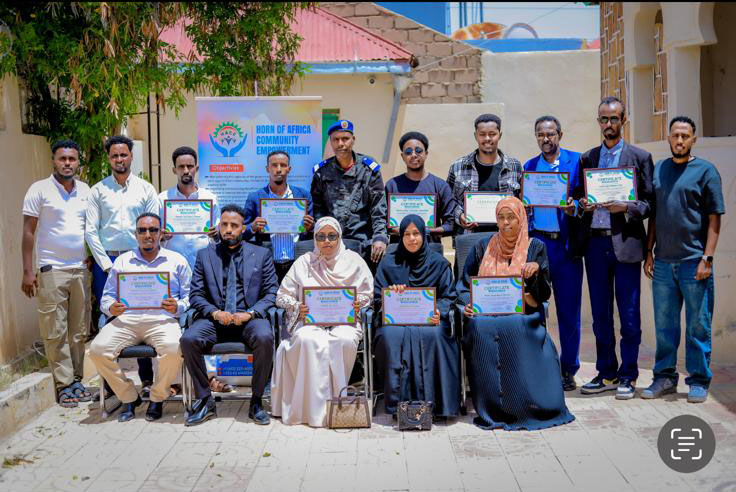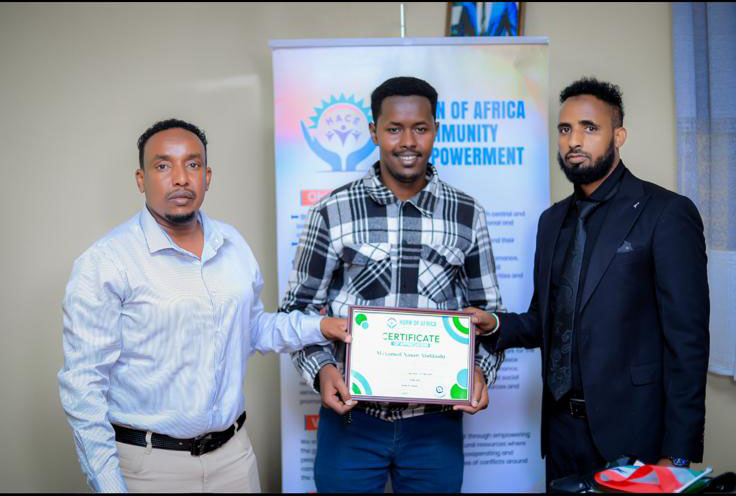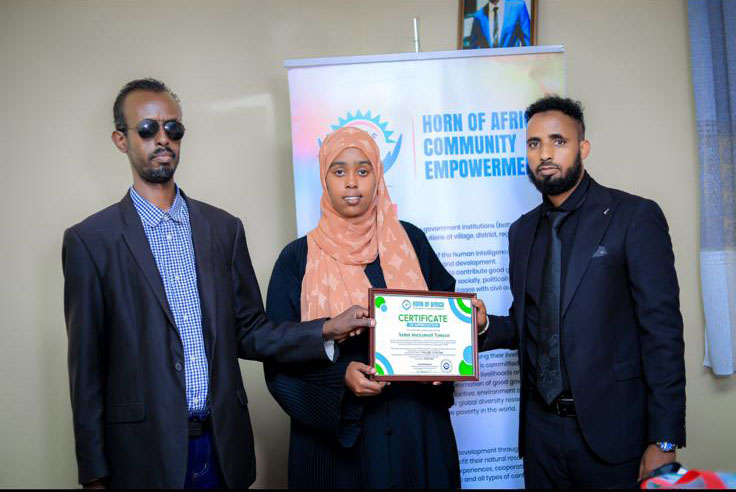
Comprehensive Report on the Data Collection and Monitoring Project for the Rights of Incarcerated Prisoners and Jails in Somaliland



Comprehensive Report on the Data Collection and Monitoring Project for the Rights of Incarcerated Persons in Somaliland
– Introduction
This project marks a significant step toward safeguarding human rights for individuals in detention facilities across Somaliland. Recognizing the importance of accurate data and effective monitoring, the initiative aims to improve the treatment of detainees, promote transparency, and foster accountability within the prison system. An official ceremony was held at the Horn of Africa Community Empowerment Organization (HACE) Office, where certificates were awarded to the dedicated members who conducted the assessment of prisons and jails in Somaliland. The ceremony was graced by representatives from HACE and the Somaliland National Human Rights Commission (SLNHRC), acknowledging their vital roles.
– Objectives of the Project
– To conduct comprehensive assessments of detention facilities in Somaliland.
– To identify the vocational skills of prisoners and explore opportunities for skill development.
– To strengthen local capacity in data collection, monitoring, and human rights advocacy.
– To promote awareness and policy reform aimed at improving detainees’ conditions and rights.
– Members of the Assessment and Data Collection Team
The team responsible for the assessment comprised dedicated staff members from both HACE and SLNHRC. Their responsibilities included evaluating the conditions of prisons, collecting data on detainees’ rights, and identifying opportunities for vocational training to facilitate prisoners’ skill development. Their efforts provided valuable insights into the current situation of detention centers and highlighted the potential for rehabilitative programs.
– Acknowledgment and Certification
In recognition of their diligent work, certificates were awarded during the ceremony as a token of appreciation. The certificates acknowledged the members’ commitment to human rights and their contributions to the assessment project. The event underscored the collaborative effort between civil society and government institutions in fostering a just and humane detention system.
– Vocational Skills Project for Prisoners
A key component of this initiative is the integration of vocational training programs aimed at equipping prisoners with marketable skills. Based on the assessment findings, prisoners will be taught various vocational skills such as tailoring, carpentry, agriculture, or other trades relevant to Somaliland’s economic context. This approach is designed to facilitate their rehabilitation, promote self-sufficiency, and reduce recidivism upon release.
Implementation Strategy
– Training Programs: Develop tailored vocational curricula suited to prisoners’ needs and local market demands.
– Partnerships: Collaborate with local artisans, business owners, and vocational trainers.
– Monitoring and Evaluation: Regularly assess the impact of training programs and adjust curricula as needed.
– Post-Release Support: Establish linkages with community organizations to support reintegration efforts.
– Benefits and Future Outlook
This assessment and vocational training initiative offers multiple benefits:
– Enhanced Human Rights Protections: Accurate data informs policy reforms that improve detainees’ treatment.
– Rehabilitation and Socioeconomic Integration: Skills training increases prisoners’ prospects for employment and reintegration into society.
– Community and Stakeholder Engagement: Recognizing the efforts of assessment team members fosters a culture of collaboration and accountability.
– Sustainable Development:The project attracts potential funding from international donors, NGOs, and government bodies, ensuring continued growth and impact.
– Conclusion
The successful assessment and certification ceremony exemplifies Somaliland’s commitment to human rights and prison reform. By focusing on data collection, monitoring, and vocational training, this project paves the way for a more humane and progressive detention system. The recognition of the assessment team’s efforts reflects the importance of collaborative work in achieving these goals.
Investing in such initiatives not only improves detainees’ lives but also enhances Somaliland’s reputation as a regional leader in human rights practices. Continued support and expansion of these efforts will foster a just society where human dignity is upheld, and rehabilitation is prioritized.